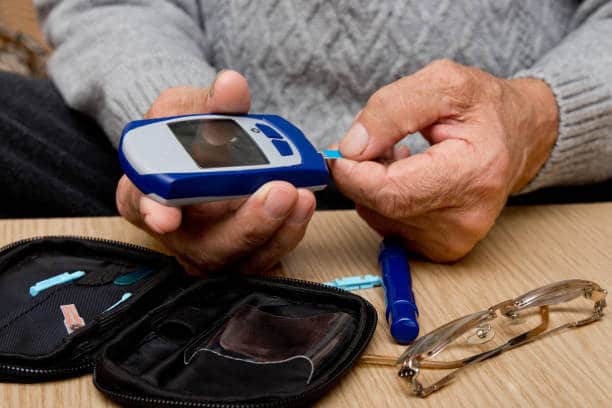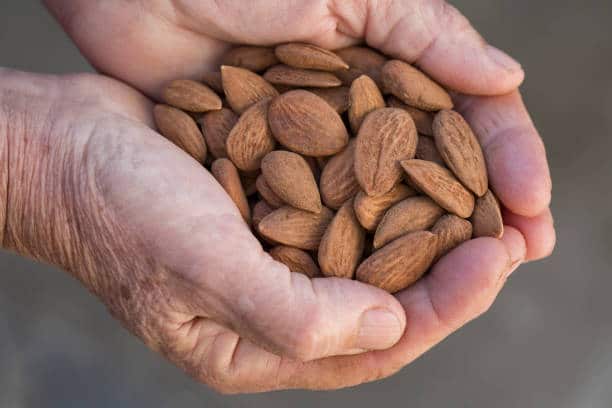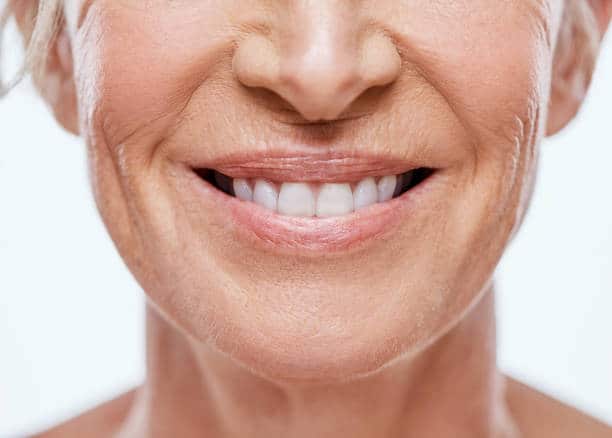Ah, those teeth, those gums! They are causing you concerns, am I wrong?
How much time spent brushing your teeth, using dental floss, going to the dentist?
Or how much time spent blaming yourself for not doing enough?
Not to mention these questions that you ask yourself: "Will I lose my teeth as I get older?" "" Can the condition of my mouth be a source of disease? " "How should I best take care of my teeth? "
So, to see a relatively high number of Quebec seniors of 65 years and over not having their own teeth, I understand that this worries you.
But it’s useless to see any fatality.
The number of seniors that have their own teeth is increasing more and more. Indeed, science enables us to better understand oral health. For example, we are doing more prevention than before; people are more aware of their health and there are more treatment options.
Would you like to better understand oral health for the elderly? You are at the right place. I talk about it here from various angles: traditional dental medicine, alternative dental medicine and nutrition.
Discover, therefore, the organ of the mouth like you have never seen it before.
Oral diseases
With age, there is an increase in oral pathologies.
When aging for example, the quantity of saliva that protects the teeth increases the risk of cavity.
Gingivitis is also present in the elderly. It’s a sign that something is not going well. The gums are bleeding. Gingivitis is caused by dental plaque and food remnants in the spaces between teeth. Fortunately, it is reversible
In the elderly, we may find periodontitis. It is an infectious disease and swelling of the gums and of the neighbouring bone.
When the bone loss is significant, you have to proceed to a dental extraction. Following the extraction, the teeth that are remaining have a tendency to move. The teeth lose their strength and stability. With time, the tissues that hold the teeth in place gradually recede. We are talking about the loosening of the teeth. The more that the loosening is present, greater is the risk of losing other teeth. And because losing one’s teeth has an impact on one’s self-esteem, it is preferable to replace the missing teeth.
In addition, oral pathology, by changing the phonation, can also become an obstacle to communication and social life.
The mouth, an isolated organ?
No way! Oral health is directly related to the global health. To prove it, an oral infection can have effects on the digestive, respiratory and blood systems.
On the same subject, taking care of one’s mouth and teeth reduces the risk to 86% to develop a bacterial pneumonia.
On the other hand, numerous studies have shown that periodontitis affects the regulation of the metabolism. The periodontitis hinders the use of insulin by the body, increasing the risk of diabetes. In the insulin-dependent diabetics, a periodontal treatment allows to reduce the insulin doses necessary for the balance of the disease.

Gums disease can also increase the risk of pancreatic cancer. Other studies have to be done though.
Other cardiac problems could be related to oral problems, particularly to gingivitis or to bruxism (in-voluntary tightening of the teeth). Bruxism is susceptible to increase the cardiac rhythm and bring about cardiac palpitations. Gingivitis that is not cured increases the risk of stroke.
Science also studies the link between gums disease and Alzheimer’s dementia. A bacteria associated to chronic periodontitis was found in patients’ brain who have Alzheimer’s disease. The migration of the bacteria from the mouth to the brain is accompanied by neurological disturbances. This bacteria produces toxic proteases which affect poteins necessary for normal neural functions. From there, the link with Alzheimer’s dementia.
It’s to say that general medicine has every advantage in working together with dentistry.
Gone are the days of working in silos.
Welcome holistic medicine.
How to take care of your teeth?
Poor oral hygiene leads to its share of problems: chewing and digestive difficulties, infection, discomfort, bad breath or unattractive appearance.
To take care of your teeth, you have to brush them after every meal with a soft toothbrush, but also use dental floss once a day. Take care of your dentures if you have any and go to the dentist on a regular basis.
Sensodyne Complete Protection is the brand most recommended by dentists for sensitive teeth. It helps to reinforce and strengthen the enamel weakened by acid, prevents plaque from forming, maintains healthy gums (prevents gingivitis) and helps to restore the whiteness of the teeth.
What about alternative methods?
Herbs, plants and natural products can also heal your teeth and your mouth.
Therefore, you can have a tea with sage, a herb which is antiseptic and anti-inflammatory.

The clove has analgesic properties.
Baking soda is an alkaline agent that neutralizes the acidity of our diet. It is not abrasive and can be mixed with tea.
As for natural toothpaste, there is an organic toothpaste Theraneem, that contains numerous purifying properties. It is made of clove, fennel, licorice and essential oil of peppered mint.
To know more on dental herbalism, you can visit the site www.dentalherbalism.com by Linda Straub-Bruce. Linda is a dental hygienist and member of the American Association of dental hygienists.
If herbs and plants influence the condition of the teeth, it’s the case for nutrition.
Nutrition and oral health
Your oral health is directly proportional to your food choices.
Bad eating habits; such as eating foods that are acidic and sugary, can precipitate cavities, gingivitis and periodontitis.
To reinforce the enamel of your teeth and the health of your gums, you can incorporate the following six vitamins and minerals in your diet:
- Calcium (milk products, green leafy vegetables, green beans, and almonds).
- Vitamin D (salmon, tuna, soya beverage).
- Vitamin C (oranges, curly cabbage).
- Phosphorus (foods rich in protein like meat, fish, eggs).
- Vitamin A (sweet potato, cantaloupe, carrot).
- Vitamin K (broccoli, brussel sprouts).

It seems that even a reduction of teeth, an unsatisfactory dental condition and an aging of oral tissues favor diets poor in fruits and vegetables, fibers and proteins. This would, in turn, favor diets rich in carbohydrates.
In this context, a defective dental condition causes deficits in iron, vitamin A, vitamin C, folic acid, thiamine and protein.
A word on the care of the mouth at the end of life
For the person at the end of life, the mouth has to be a source of comfort and well-being because it enables to talk, hug, and appreciate a meal or a drink.
What is the care of the mouth at the end of life?
The mouth care at the end of life consists of brushing of the teeth and/or dentures. It can be the use of lemon and glycerine sticks to keep the mucous membranes hydrated. There is also any additional care depending on the pathologies present.
The caregiver should always perform the care with as much dignity as possible.
Oral health of the elderly: conclusion
I hope that with my article you were able to better understand oral health in the elderly.
I talked about oral illnesses, the links between the mouth and global health, how to take care of one’s teeth, alternative methods, nutrition and oral care at the end of life.
However, beyond our knowledge, and even if we are very conscious of our health, dental costs are always high and are not in favor of persons with a low income and for those who do not have private insurance.
This is why I think there should be a policy to offer free dental care to all citizens of Quebec.
And you, what do you think?

L’article est très intéressant et je suis d’accord que les soins devraient être couvert par la carte l’assurance-maladie.
Very descriptive blog, I enjoyed that a lot. Will there be a part
2?
Greetings from Los angeles! I’m bored to
death at work so I decided to browse your blog on my iphone during lunch break.
I love the information you provide here and can’t wait to
take a look when I get home. I’m shocked at how quick your blog loaded on my phone ..
I’m not even using WIFI, just 3G .. Anyhow, wonderful
blog!
I couldn’t resist commenting. Very well written!
Everything is very open with a really clear explanation of the
challenges. It was truly informative. Your site is very
useful. Many thanks for sharing!